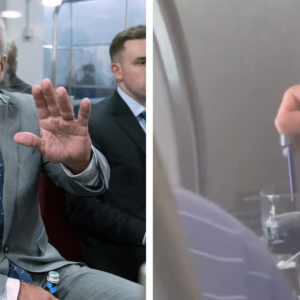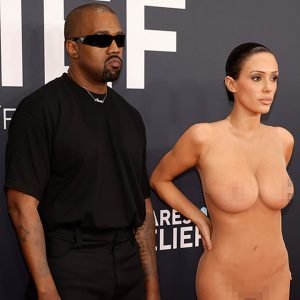
Google claims in Senate hearing it doesn’t dominate search
Josh Taylor
Google has rejected suggestions from Australian senators that it is the dominant player in search in Australia.
The Labor chair of the AI adoption Senate committee, Tony Sheldon, pointed to the US federal court ruling this month that Google illegally monopolised search and questioned whether Google dominated search in Australia.
Google’s Australian government affairs and public policy director, Lucinda Longcroft, told the committee Google did not agree with the ruling and would be appealing and refused to say Google dominates search, instead saying that Google has a popular search product but the search market was diverse and highly competitive.
Longcroft didn’t accept figures comparing Google to other search engines like Bing and compared Google to people using Amazon to find products or Seek to find jobs.
Key events
Response to report on murdered Indigenous women should be led by First Nations communities, commissioner says
The Australian Human Rights Commission is calling for action on the findings of a new report on murdered and missing First Nations women.
The landmark inquiry’s final report was tabled on Thursday and found there has been “little, if any, justice” for many First Nations women and children who have been murdered or disappeared.
The Aboriginal and Torres Strait Islander social justice commissioner, Katie Kiss, said the report would play a “vital role” in improving the safety and rights of First Nations women and girls.
Violence against First Nations women and children is a major problem, and we need to be clear-eyed not only about the nature and extent of this violence, but also about the root causes of this violence, and that’s prejudice, gender inequality and discrimination against women, lack of opportunity, personal trauma, intergenerational trauma and systemic racism.
Systemic failures not only drive the violence but also affect the provision and quality of care and support for women experiencing violence, and this includes failures by police, healthcare workers and other service providers.
So, it’s a very complex issue which requires a multi-faceted response, and this has been recognised by the comprehensive nature of the report’s recommendations. But that response must be led by First Nations communities. We know what will work to protect our women and help our communities thrive, and governments and service providers need to give our communities the respect and resources we need to make this happen.
The prime minister, Anthony Albanese, has shared some photos from his meeting with New Zealand’s prime minister Chris Luxon in Canberra today.
Josh Taylor Google has rejected suggestions from Australian senators that it is the dominant player in search in Australia.
The Labor chair of the AI adoption Senate committee, Tony Sheldon, pointed to the US federal court ruling this month that Google illegally monopolised search and questioned whether Google dominated search in Australia.
Google’s Australian government affairs and public policy director, Lucinda Longcroft, told the committee Google did not agree with the ruling and would be appealing and refused to say Google dominates search, instead saying that Google has a popular search product but the search market was diverse and highly competitive.
Longcroft didn’t accept figures comparing Google to other search engines like Bing and compared Google to people using Amazon to find products or Seek to find jobs.
Josh Taylor Google fronts AI adoption Senate inquiry
Google has been probed over the high energy consumption of generative AI after it was revealed the company’s emissions jumped nearly 50% in five years due to AI.
At the AI adoption Senate inquiry, the Greens’s David Shoebridge questioned what Google was doing to make sure users were aware that responses to generative AI prompts, such as images or video, use much more energy than a standard Google search.
Google’s director of government affairs and public policy in Australia, Lucinda Longcroft, said the information is contained in the company’s publicly available environment report and Google was working to meet its targets, noting that emissions from AI are reducing as investment in the technology increases.
Shoebridge pointed out that people aren’t alerted when entering into a prompt how much energy it might use.
Are they going to be referencing the state of the environment report when I do that? Is Google thinking that as a responsible global player, that some kind of … real-time acknowledgement of the energy use, feedback and response might be useful?
Longcroft said it was an interesting idea and she would take the question on notice. The company also said it would look to provide information on the relative energy use for a Google search versus image or video generation using AI.
Catie McLeod The New South Wales transport minister, Jo Haylen, says she can understand why Liberal council candidates affected by the party’s local government election fiasco would be disappointed and angry.
The Liberal party is grappling with the fallout from its catastrophic administrative error that resulted in it missing the noon Wednesday deadline to lodge the necessary paperwork to nominate more than 130 candidates for the 14 September local government elections.
Speaking to reporters earlier this morning, Haylen said:
Communities have been let down and candidates have been let down. I can understand why there is great anger and disappointment, not only within the Liberal party, but across many communities in Sydney today.
People deserve a choice. The Liberal party has failed to deliver that opportunity for people across Sydney.
Haylen, who served as Marrickville’s Labor mayor before she entered state parliament, said councils were a “pathway to state politics” for many MPs.
There are many reasons why people within the Liberal party are very angry about what has occurred.
Albanese says discussions taking place on PNG NRL team
Asked whether PNG would be getting an NRL team, Anthony Albanese responded:
We are working through those issues. I can confirm we are in discussions with the Australian Rugby league, with the New Zealand government and the Australian government.
We see this not just being about sport, but being about economic development and about cementing the relationship that our two great countries have.
Albanese and Luxon agree cyber-attack could trigger treaty provisions
A reporter asks what Anthony Albanese means when he talked about a cyber-attack potentially triggering article four (see earlier post).
Chris Luxon responded that if New Zealand should come under a severe cyber-attack, “both countries would invoke the arrangement under our arrangements and it is pretty simple.”
We can see warfare has changed and cyberwarfare is a large part and we are making sure that is modern and reflective of the environment we operate in and how warfare is undertaken.
Anthony Albanese added that the assessment would be made on a case-by-case basis.
A cyber-attack can have as great an impact as an attack from traditional means. The way we have viewed warfare is changing. An attack on the economy can bring down the operation of an entire society … so we need to prepare for all of these issues and modernise and make sure the agreement we have reflects modern issues.
Albanese says Aukus will have opportunities for NZ participation
Asked whether New Zealand should join pillar two of the Aukus deal, Anthony Albanese said there would be “opportunities” for them to participate on a case-by-case basis, as Japan had been invited to do so.
Just as interoperability between our two defence forces is a priority and an objective, it makes sense therefore when we are considering pillar two of the Aukus agreement to engage like-minded countries…
Given we’re actually about exchanges of … one star and two star senior defence personnel being embedded in each other’s defence forces, so we want to make sure there is as much cooperation as possible because that will make the combined objective we have much more effective.
Luxon says joint procurement one possibility from interoperable defence ties with Australia
Chris Luxon said he doesn’t have any concerns about the recruitment of New Zealanders into the Australian defence force.
It is early to presuppose the outcome of that defence capability plan … But those are good examples of areas where we should be collaborating and doing joint procurement as much as possible. And when I say interoperable that is what we mean.
‘Commonsense approach’ being taken on deportation policy: Albanese
The leaders are now taking questions from reporters.
Anthony Albanese is asked about the 501 deportation policy and concerns from NZ that, under direction 110, Australia would send people back to NZ with little connection to the country. The reporter said:
How do you justify contributing to New Zealand’s crime and gang problem with what effectively are Australian-grown criminals?
Albanese responded:
Notwithstanding the provocative nature of the tone of the question, what we have is an understanding that while we have common purpose, we do not have uniform positions, but we respect each other’s position.
Australia’s job is to look after our national interest. We say the safety of Australians is the No 1 consideration in the ministerial direction 110, but it also continues to apply commonsense. A commonsense approach … is all we try to bring to this and that is understood.
NZ prime minister Chris Luxon addresses reporters in Canberra
Circling back to the press conference in Canberra, where New Zealand’s prime minister, Chris Luxon, is now speaking to reporters. He highlighted some of the key areas the two leaders discussed, and said:
We already had some productive talks and we look forward to continuing up this afternoon as well.
On defence, he said they had invited Australia and NZ’s defence ministers to update and renew closer defence relations at their next meeting.
I commend [Albanese] and thank him deeply for the changes he announced last year to create a direct to citizenship for New Zealanders in Australia. That is life changing, turning hard-working Kiwis into your very best Australians.
We also discussed 501 deportation with a focus on the commonsense approach deportations that addresses people whose formative experiences were nearly all in Australia, and Prime Minister Albanese and I agreed to engage closely on this.
Ben Smee The former Queensland premier, Annastacia Palaszczuk, has been appointed to the board of Australia Post.
Palaszczuk, who retired from politics in December after almost nine years as premier, will serve a three-year term as a non-executive director. She replaces Tony Nutt, the former federal director of the Liberal party.
In a statement, the federal government said Palaszczuk’s experience in government relations, delivering services in a decentralised state, and managing the logistical challenges of the Covid pandemic were “highly applicable” to a role with the national letter carrier.
The communications minister, Michelle Rowland, said:
Palaszczuk brings a wealth of experience in service delivery to regional and rural communities to the Australia Post Board.
Palasczuk will be paid $107,000 a year in the new role.
Albanese flags benefits of ‘interoperability’ on defence with New Zealand
Speaking specifically on defence, Anthony Albanese said the two PMs “committed to working in lockstep like never before” to ensure “prosperity”.
New Zealand is going through a defence review a bit like what we did [with the] Defence Strategic Review, so we talked about [how we] can assist while New Zealand work through those issues.
We worked through, as well the benefits, of interoperability – the exchanges that we have between senior defence personnel that are so important for us.
We also discuss increasingly important role that cyberspace plays to enhance cooperation in tackling cyber [attacks]. We reaffirmed that international law applies in cyberspace and that a cyber-attack on either country could, depending on its nature, constitute an attack under article four of the treaty.
The prime minister, Anthony Albanese, is speaking to the media following his meeting with NZ counterpart, Chris Luxon.
Just a moment ago, Albanese’s office released a statement on what was discussed during talks – including Aukus technology opportunities, climate change, the need for an “immediate ceasefire in Gaza” and a denunciation of Russia (for the invasion into Ukraine) and China (for “provocative behaviour in the South China Sea”).
Albanese told reporters:
Our ties are older than our democracy, [our] connection so strong we regard ourselves as family. Our history speaks for our common commitment to peace, prosperity and security … Ours is more than a bond of old affection, it is a partnership … recognises that together, we are stronger than just individual countries and that will work together not just in our relationship between each other, but as well as part of the Pacific family and as good global citizens as well.
Compensation for survivors of child sexual abuse is forecast to cost Tasmania $571m more than expected, AAP reports.
The island state, which has the only Liberal premier in the country, was expected to record a budget deficit of $298m in 2023/24. But that figure will balloon to $1.5bn, according to a preliminary outcomes report.
The state’s liability for future abuse redress and civil claims was assessed to be $647m at 30 June, an increase of $571m from one year prior.
The state in June agreed to pay $75m to 129 former detainees at the still-operational Ashley youth detention centre who had launched legal action. Tasmania is also implementing 191 recommendations from an inquiry that examined sexual abuse suffered by children in state care over decades.
The state’s treasurer, Michael Ferguson, will deliver the 2024/25 budget on 12 September. He said the increased deficit was a result of investment in cost-of-living relief measures, recruitment of frontline workers and funding for claims of child sexual abuse over 40 years.
He said the government had been upfront about the impacts of implementing the inquiry’s recommendations:
It will hurt the budget, and this will be expensive, but we will need to do it. I am prepared to cop any and all criticism that results from doing the right thing in our budget responses.
Jonathan Barrett Revenue surges at Domain amid strong property listings
Property portal Domain Holdings has recorded a 13% lift in full year revenue to $391m, after a robust property market continued to drive strong listing numbers.
The digital real estate company, majority owned by the Nine Network, recorded net profit of $49.4m, up 27.9%.
Domain’s chief executive, Jason Pellegrino, said in results released today that national “for sale” listings increased by 3% over the financial year.
Sydney and Melbourne led the market up as is typically the case.
Earlier this week, the News Corp-backed rival REA Group also enjoyed strong returns, which helped offset weakness in the media company’s news division.
Profits at digital property portals tend to follow the real estate market, with strong listing numbers usually equating to increased revenue.
Google claims in Senate hearing it doesn’t dominate search


Jo Haylen weighs in on NSW Liberals council election fiasco

Annastacia Palaszczuk appointed to board of Australia Post

Albanese speaking to media following talks with NZ counterpart
Abuse claims to cost Tasmanian budget an extra $571m








